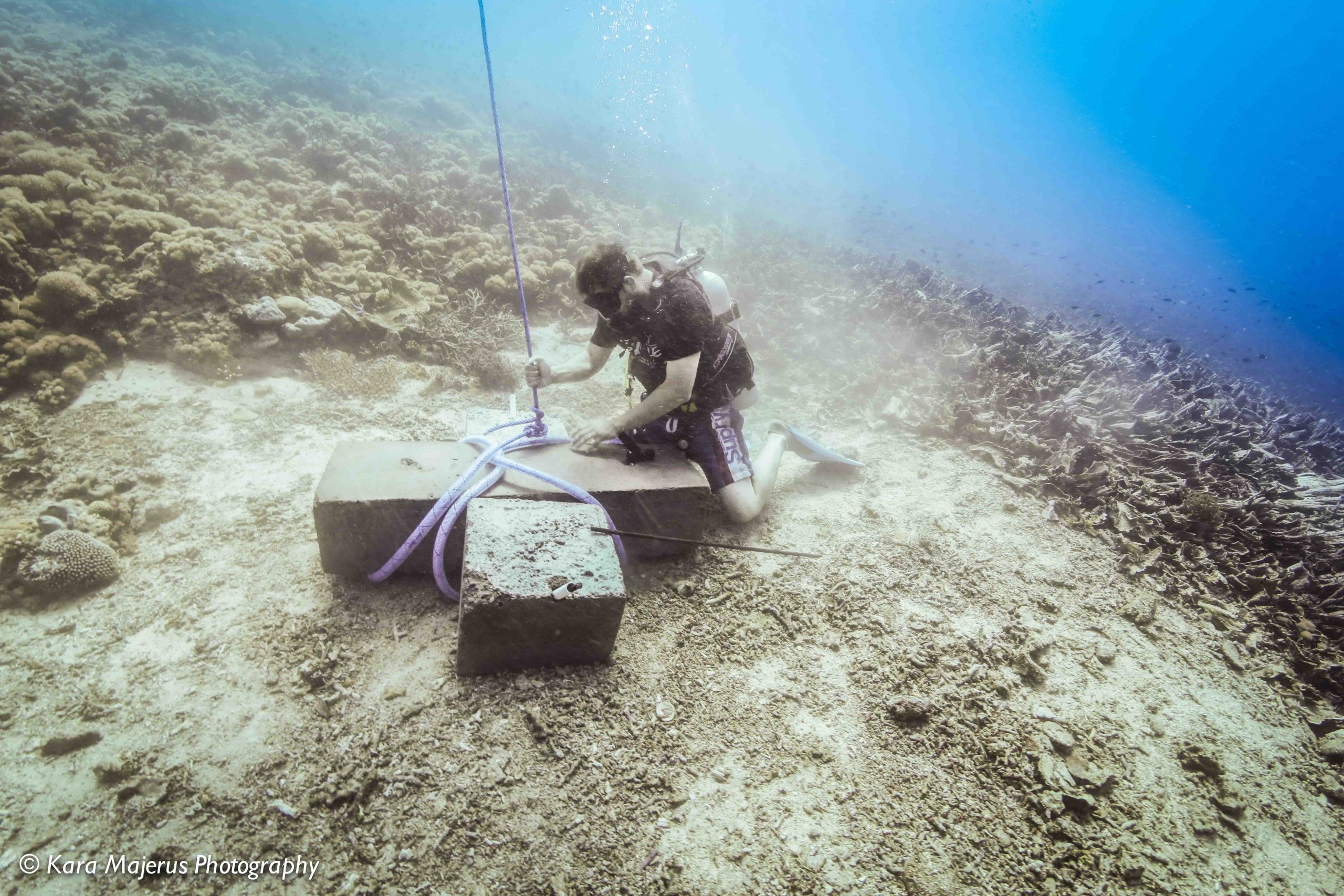Our Conservation activities are at the core of the work we do. Our projects aim to both protect healthy habitats and restore historically degraded areas. The primary goal of the conservation initiatives at SORCE is to restore marine environments to a state of good health and productivity and to maintain them once this has been achieved. The conservation work that we conduct is directly impacted by our research initiatives, which allow us to keep up to date with scientific advancements so as to ensure that our projects are as effective as possible. Based on the research to date we have developed several key conservation initiatives, with several more scheduled for the coming year.
In order to achieve our primary mission, our projects tackle a number of environmental issues using both large- and small-scale approaches. At the broad end of the spectrum, we assist the local government by providing data for ecological planning and the development of marine park management strategies. We are working with the government and the local community to develop and implement more sustainable fishing and harvesting methods and restrictions, as well as waste management schemes and an eco-tourism industry. At a local level, we run a number of hands-on habitat rehabilitation projects in collaboration with the local community, the University of Mataram, and our students, to actively restore marine environments. This collaboration and multi-faceted approach ensures that we get the most out of every project we run.
Coral Reef Restoration
 Coral Reef ecosystems are under threat at global and local levels. Issues such as climate change, pollution, unsustainable fishing practices, irresponsible tourism, invasive species, and anchor damage, to name a few, are compounding to reduce the health of corals on a massive scale and at an unprecedented rate.
Coral Reef ecosystems are under threat at global and local levels. Issues such as climate change, pollution, unsustainable fishing practices, irresponsible tourism, invasive species, and anchor damage, to name a few, are compounding to reduce the health of corals on a massive scale and at an unprecedented rate.
SORCE is dedicated to ensuring coral reef survival through active protection and restoration. In order to achieve the objectives of the Coral Reef Restoration project we train and encourage the engagement of both staff and students in project activities. These include but are not limited to:
- Degraded Coral Reef Assessment
- Hard Coral Collection (Corals of Opportunity)
- Coral Propagation and Nursery Construction
- Coral Nursery Maintenance
- Artificial Reef Construction
- Hard Coral Transplantation
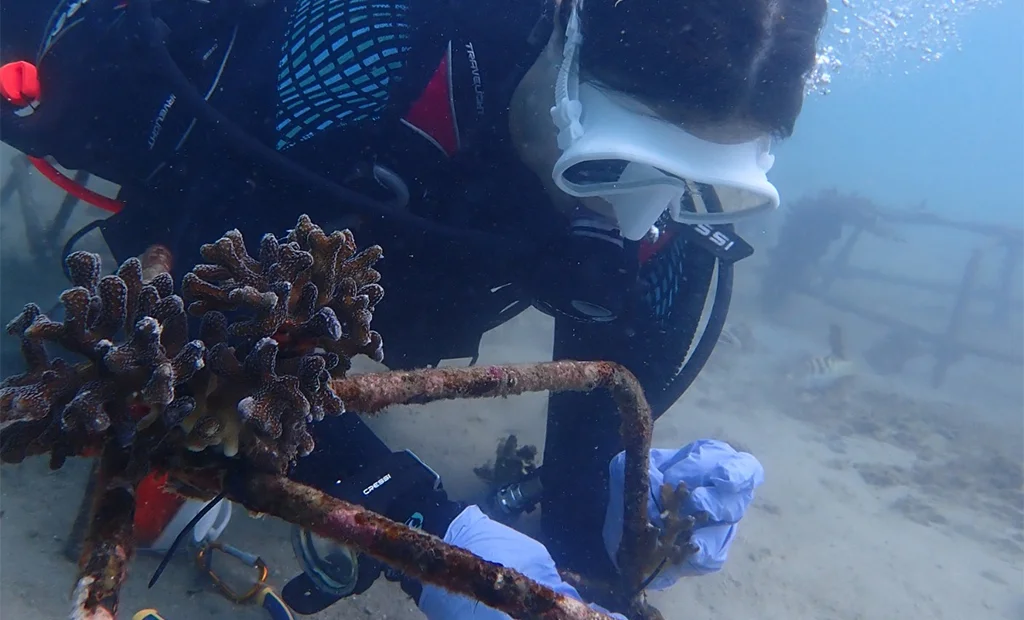
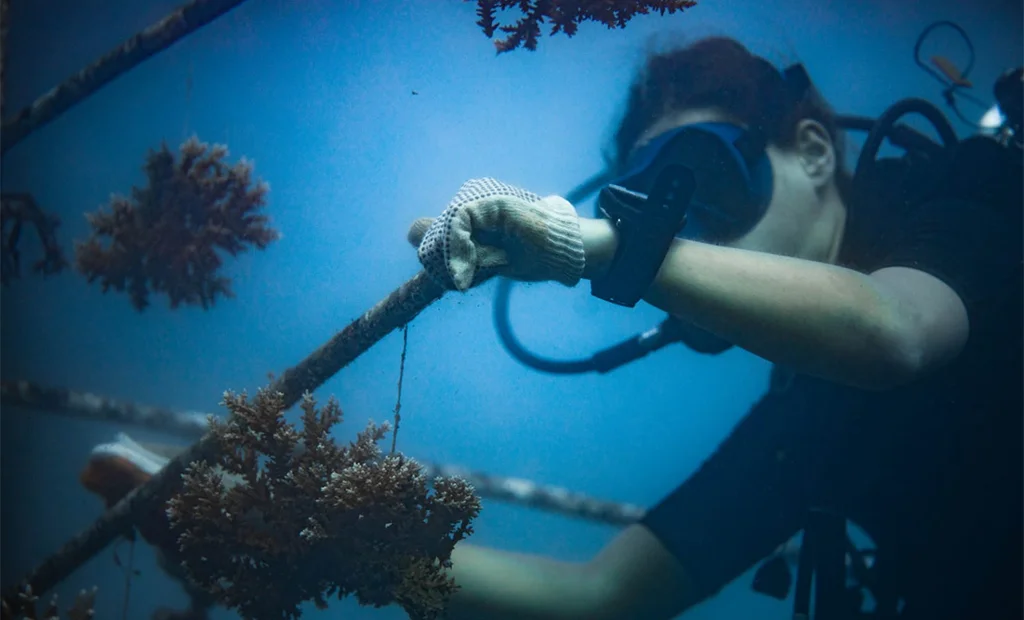
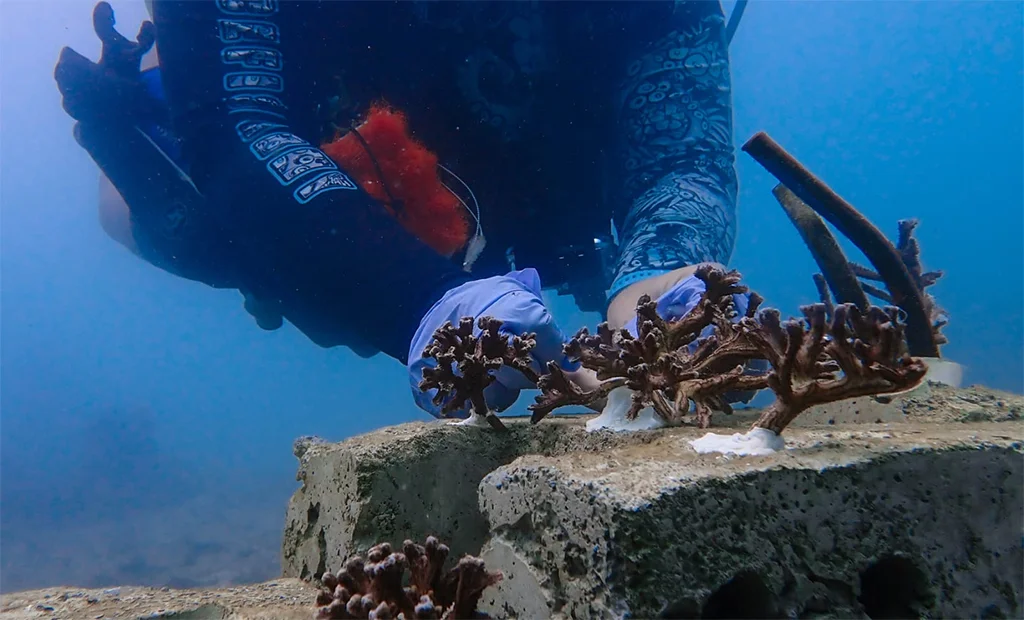
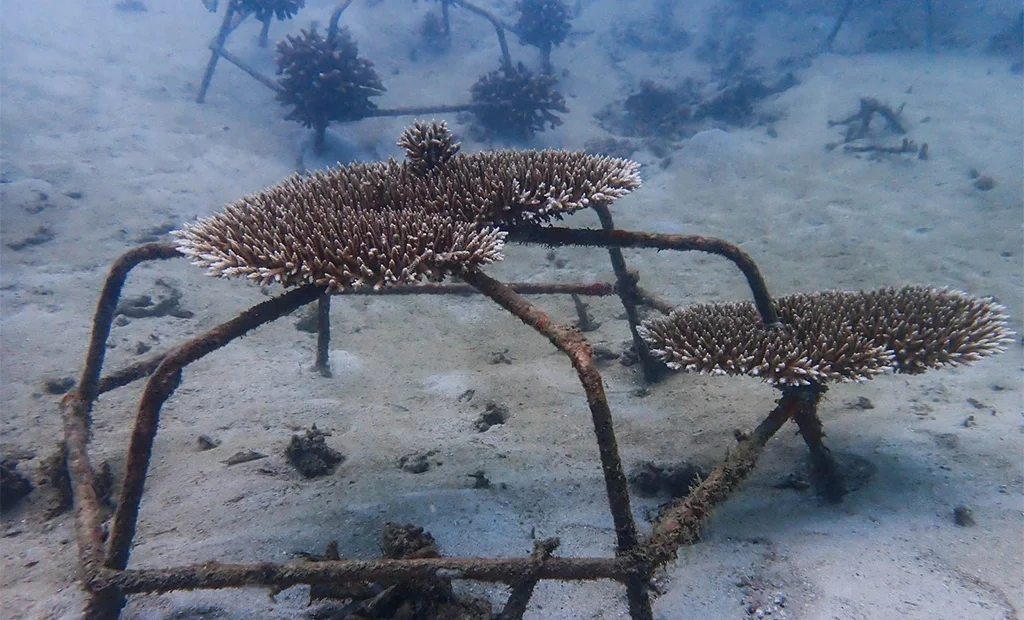
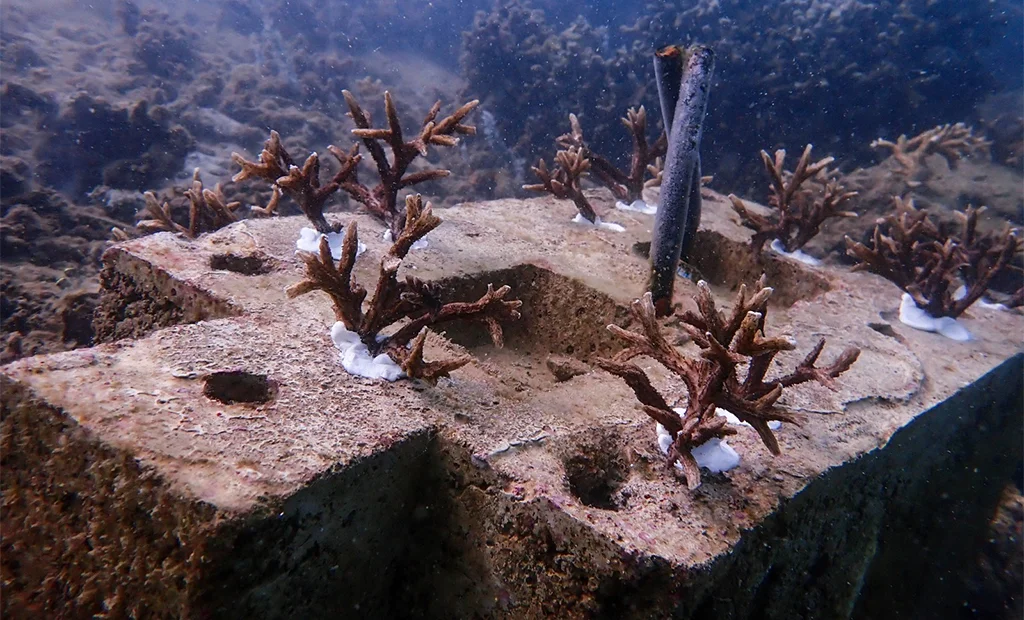
One of our key focuses within this project is to maintain and improve levels of biodiversity within the reef ecosystems in which we work. Community biodiversity has long been known to be positively correlated with an ecosystem’s resistance and resilience to environmental stochasticity. This means that the complex array of creatures and interlocking food chains increases an entire ecosystem’s ability to adapt to changes in the environment. Climate change is recognized as a major threat facing coral reefs by NOAA. Therefore it is essential to ensure ecological communities have maximum biodiversity in order to give these fragile ecosystems the best possible chance to adapt to climate change and other anthropogenic stressors.
Mangrove Forest Restoration
Restoring habitat connectivity is essential for any individual habitat to be returned to optimum health. Here at SORCE this can be seen most clearly in areas where mangroves have been removed. Not only has this damaged the mangrove itself, but it has also allowed for progressive destruction to adjacent seagrass and coral reef ecosystems.
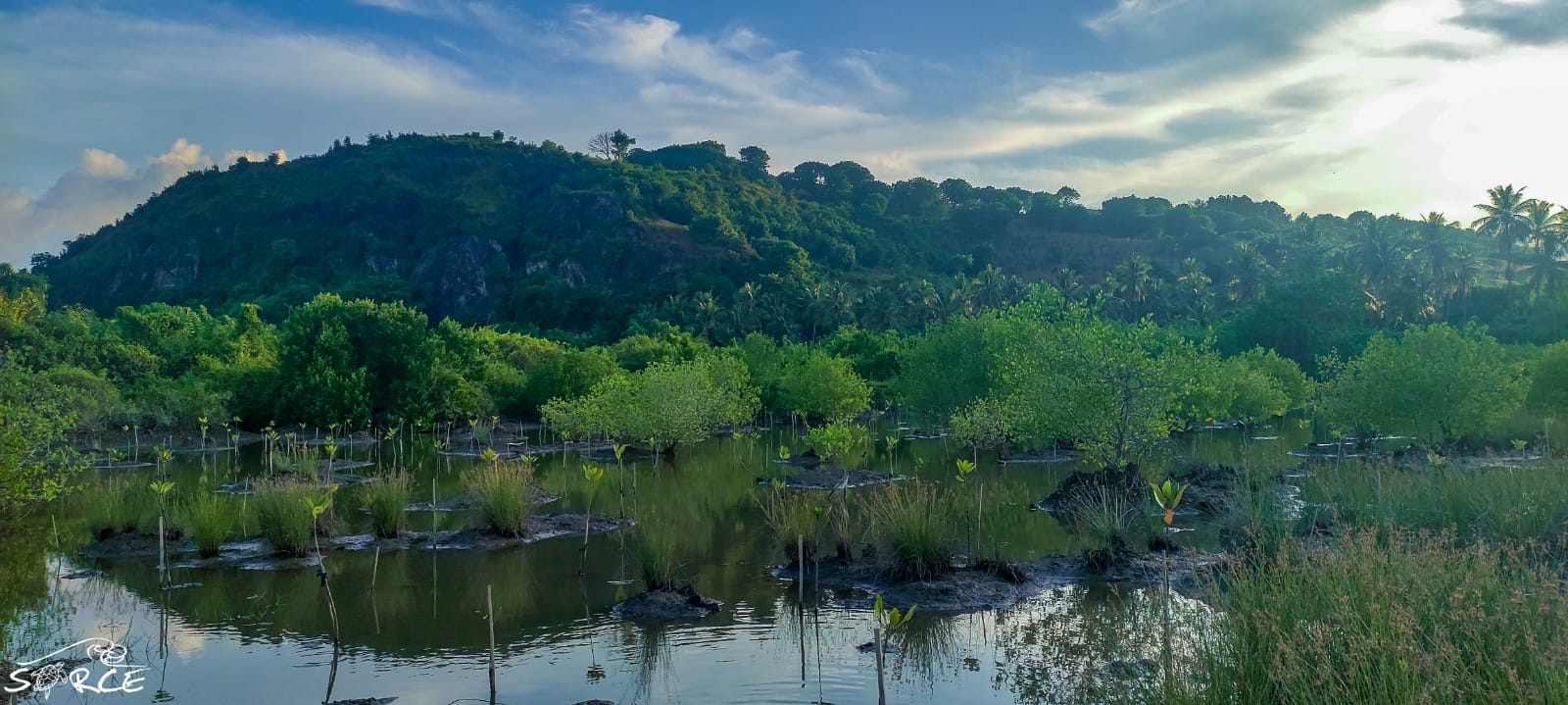 Our Mangrove Forest Restoration project focuses on the restoration and replanting of mangrove trees. Through careful assessment and monitoring utilising GIS mapping we have determined priority sites for mangrove plantations and will continue to identify areas for future mangrove restoration. There is also a large cleanup element to the mangrove restoration project due to the frequent dumping of waste materials and products by local peoples, in addition to debris that washes in with the tide.
Our Mangrove Forest Restoration project focuses on the restoration and replanting of mangrove trees. Through careful assessment and monitoring utilising GIS mapping we have determined priority sites for mangrove plantations and will continue to identify areas for future mangrove restoration. There is also a large cleanup element to the mangrove restoration project due to the frequent dumping of waste materials and products by local peoples, in addition to debris that washes in with the tide.
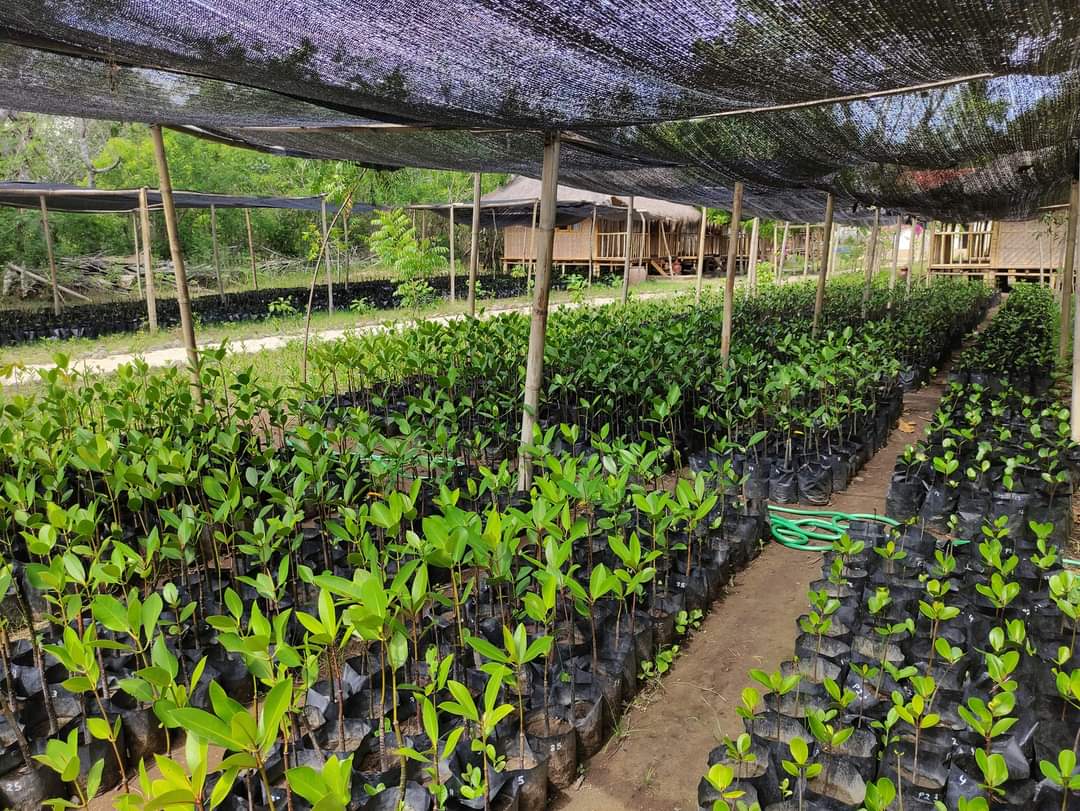 Since our local mangrove forest extends next to a village community it has been vitally important for us to include the local community in this project, particularly regarding ongoing issues that threaten the survival of the habitat. Through regular communication and training, we are building a local community scheme to develop solutions to some of these problems whilst simultaneously educating participants regarding the importance of mangrove forests and the restoration techniques that we use. We have established a number of sub-sections to the program, which includes:
Since our local mangrove forest extends next to a village community it has been vitally important for us to include the local community in this project, particularly regarding ongoing issues that threaten the survival of the habitat. Through regular communication and training, we are building a local community scheme to develop solutions to some of these problems whilst simultaneously educating participants regarding the importance of mangrove forests and the restoration techniques that we use. We have established a number of sub-sections to the program, which includes:
- Degraded Mangrove Assessment
- Propagule Collection
- Mangrove Nursery Establishment
- Transplantation Site Preparation and Cleanup
- Mangrove Plantation
We are also working on negotiations and the identification of alternative sources of fuel and long-term waste management strategies with local communities to prevent future damage.
Seagrass Meadow Restoration
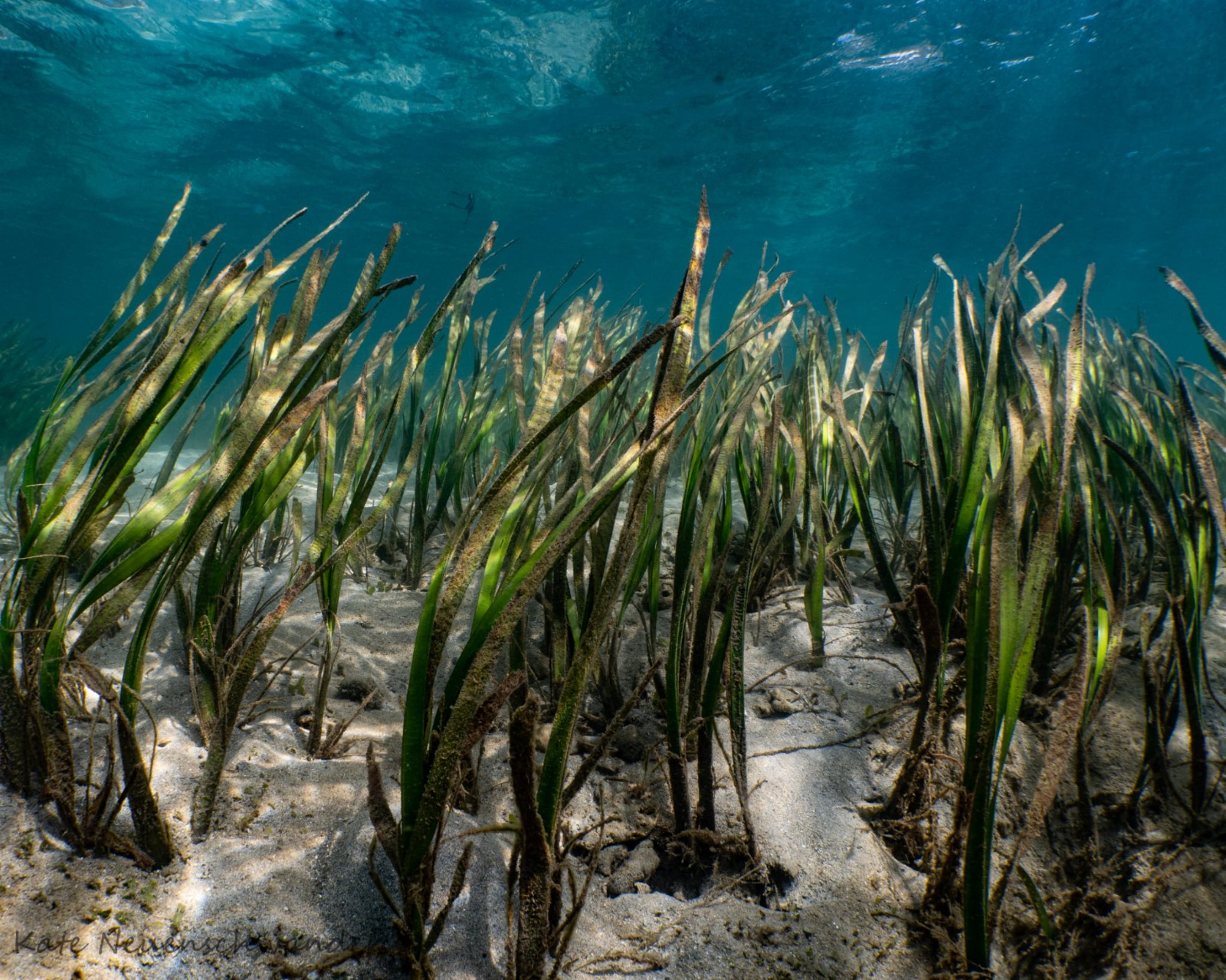 Seagrass meadows are an essential marine habitat that are often overlooked. Frequently seen as dirty and unappealing these areas are often cleared in order for land reclamation and the generation of white sand beaches. Furthermore, in many parts of the world, Indonesia included, people forage for crustaceans and molluscs by walking through seagrass beds at low tide and dragging rakes and nets along behind them. This practice can be very damaging, particularly to certain species of seagrass that can not survive the continual trampling.
Seagrass meadows are an essential marine habitat that are often overlooked. Frequently seen as dirty and unappealing these areas are often cleared in order for land reclamation and the generation of white sand beaches. Furthermore, in many parts of the world, Indonesia included, people forage for crustaceans and molluscs by walking through seagrass beds at low tide and dragging rakes and nets along behind them. This practice can be very damaging, particularly to certain species of seagrass that can not survive the continual trampling.
Fortunately, seagrasses can grow and repopulate a suitable area relatively quickly if given the chance. We are working with local grassroots organisations and villages to identify ideal areas for protection so that further damage can be prevented. Once identified each area is restored following the process outlined below:
- Degraded Seagrass Assessment
- Community Outreach and Education
- Seagrass Transplantation
Habitat connectivity is critical for seagrass health, as well as the health of mangrove and coral reef ecosystems that exist alongside them, therefore, priority is given to areas of meadow that will re-connect other habitat fragments. By assessing the neighboring habitat fragments we are able to determine which species should be reintroduced to the restoration area in order to develop communities that are indicative of the degraded meadows natural healthy state.
Turtle Conservation
 Turtles have been in the ocean for over 100 million years, however, anthropogenic activity such as coastal zone development, poaching, bycatch, and climate change are all having negative impacts which risk their survival. With only seven marine turtle species in the world, SORCE is incredibly fortunate to have both green and hawksbill turtles nesting in the area. The two species are listed as endangered and critically endangered by the IUCN Redlist but can be seen frequently during scuba dives with SORCE.
Turtles have been in the ocean for over 100 million years, however, anthropogenic activity such as coastal zone development, poaching, bycatch, and climate change are all having negative impacts which risk their survival. With only seven marine turtle species in the world, SORCE is incredibly fortunate to have both green and hawksbill turtles nesting in the area. The two species are listed as endangered and critically endangered by the IUCN Redlist but can be seen frequently during scuba dives with SORCE.
SORCE has assumed a pivotal role in the conservation of turtles in GITA NADA Marine Park. Through collaboration with local organisations, private stakeholders, and the local government we have developed a turtle conservation program run by local people and organisations in partnership with SORCE and funded by eco-tourism activity. SORCE takes an active approach to anti-poaching by ensuring that staff and students are involved in the following activities:
- Anti-poaching Patrol
- Hatchery Maintenance
- Egg Collection
- Egg Relocation
- Hatchling Release
- Turtle Biology and Conservation Classes
Debris Collection
Plastic Pollution and Overfishing are two of the biggest crises facing our oceans today. Here at SORCE, we work tirelessly to clean up the oceans whenever we can. Not only does this involve collecting plastic debris and discarded fishing gear from under the water but also from along beaches and throughout the mangroves. We try to do a beach clean every evening, and here at SORCE, every dive is a debris dive, regardless of the other activities we are carrying out.
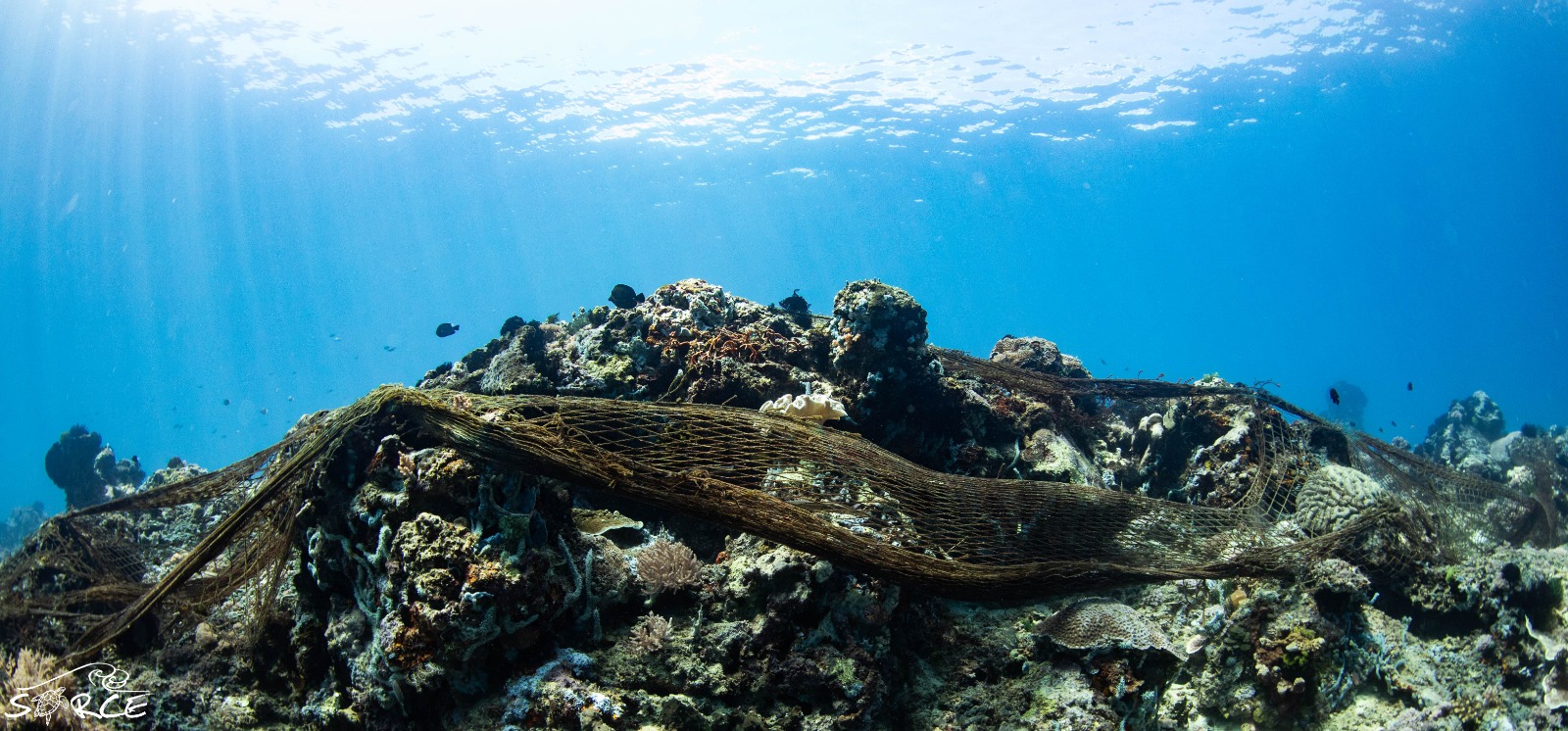 At present SORCE is collecting, cleaning, cataloging, and storing all of the plastic, metal, and glass waste we find. We are currently trying to raise funding to build recycling prototypes so that these materials (many of which were single-use) can be repurposed and used to create a number of multi-use items of great importance and value to the local community, such as tables and chairs for local schools, eco-blocks for building etc. Once tried and tested these models can be incorporated into the waste management strategy plans that we are currently helping our local villages to develop.
At present SORCE is collecting, cleaning, cataloging, and storing all of the plastic, metal, and glass waste we find. We are currently trying to raise funding to build recycling prototypes so that these materials (many of which were single-use) can be repurposed and used to create a number of multi-use items of great importance and value to the local community, such as tables and chairs for local schools, eco-blocks for building etc. Once tried and tested these models can be incorporated into the waste management strategy plans that we are currently helping our local villages to develop.
Click below to find out how you can:
Get Involved
Or to learn about our other initiatives click here:
